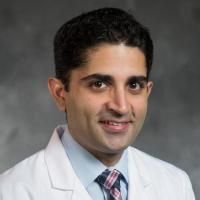Association between preoperative respiratory support and outcomes in paediatric cardiac surgery.
Date
2019-11-27
Journal Title
Journal ISSN
Volume Title
Repository Usage Stats
views
downloads
Citation Stats
Attention Stats
Abstract
BACKGROUND:Preoperative mechanical ventilation is associated with morbidity and mortality following CHD surgery, but prior studies lack a comprehensive analysis of how preoperative respiratory support mode and timing affects outcomes. METHODS:We retrospectively collected data on children <18 years of age undergoing cardiac surgery at an academic tertiary care medical centre. Using multivariable regression, we examined the association between modes of preoperative respiratory support (nasal cannula, high-flow nasal cannula/noninvasive ventilation, or invasive mechanical ventilation), escalation of preoperative respiratory support, and invasive mechanical ventilation on the day of surgery for three outcomes: operative mortality, postoperative length of stay, and postoperative complications. We repeated our analysis in a subcohort of neonates. RESULTS:A total of 701 children underwent 800 surgical procedures, and 40% received preoperative respiratory support. Among neonates, 243 patients underwent 253 surgical procedures, and 79% received preoperative respiratory support. In multivariable analysis, all modes of preoperative respiratory support, escalation in preoperative respiratory support, and invasive mechanical ventilation on the day of surgery were associated with increased odds of prolonged length of stay in children and neonates. Children (odds ratio = 3.69, 95% CI 1.2-11.4) and neonates (odds ratio = 8.97, 95% CI 1.31-61.14) on high-flow nasal cannula/noninvasive ventilation had increased odds of operative mortality compared to those on room air. CONCLUSION:Preoperative respiratory support is associated with prolonged length of stay and mortality following CHD surgery. Knowing how preoperative respiratory support affects outcomes may help guide surgical timing, inform prognostic conversations, and improve risk stratification models.
Type
Department
Description
Provenance
Subjects
Citation
Permalink
Published Version (Please cite this version)
Publication Info
Ciociola, Elizabeth C, Karan R Kumar, Kanecia O Zimmerman, Elizabeth J Thompson, Melissa Harward, Laura N Sullivan, Joseph W Turek, Christoph P Hornik, et al. (2019). Association between preoperative respiratory support and outcomes in paediatric cardiac surgery. Cardiology in the young. pp. 1–8. 10.1017/s1047951119002786 Retrieved from https://hdl.handle.net/10161/19561.
This is constructed from limited available data and may be imprecise. To cite this article, please review & use the official citation provided by the journal.
Collections
Scholars@Duke

Karan Ravindra Kumar
I am an Assistant Professor of Pediatrics and a Pediatric Critical Care Physician at Duke University School of Medicine, and I am also affiliated with the Duke Clinical Research Institute (DCRI). My research focuses on advancing pediatric healthcare through the integration of biostatistics, clinical research informatics, and data science. I have significant experience managing large datasets, including the Pediatrix Medical Group Clinical Data Warehouse and the NICHD-funded Pediatric Trials Network, which have provided vital insights into disease patterns and pediatric drug labeling. I contribute analytical support to various pediatric research initiatives. My efforts extend to exploring automation of data integration in clinical trials, enhancing research infrastructure, and leading critical trials and registries to improve pediatric health outcomes. I am enthusiastic about applying my expertise in biostatistics, database management, and predictive analytics to future projects.

Kanecia Obie Zimmerman

Elizabeth Thompson

Joseph W Turek
Joseph W. Turek, MD, PhD, MBA is an academic pediatric cardiac surgeon at Duke University in Durham, North Carolina. Since 2017, Dr. Turek has served as chief of pediatric cardiac surgery. Prior to Duke, he served in a similar leadership role at the University of Iowa Stead Family Children’s Hospital from 2012-2017.
Dr. Turek attended the Illinois Mathematics and Science Academy for secondary education. He then graduated from Northwestern University with a degree in biochemistry and received his MD/PhD (pharmacology) from the University of Illinois in Chicago with Alpha Omega Alpha distinction. He completed his general surgery education at Duke University, where he also finished a cardiothoracic surgery residency. During this time, he served as a visiting congenital heart surgery fellow at Texas Children’s Hospital. Dr. Turek completed a congenital cardiac surgery fellowship at the Children’s Hospital of Philadelphia in 2011. He received his MBA with a concentration in Health Sector Management from Duke’s Fuqua School of Business in 2020.
Board certified in general surgery, thoracic surgery and congenital cardiac surgery, Dr. Turek has been one of the foremost innovators of the last decade in congenital heart surgery, developing novel operations, modifying techniques and introducing new products and procedures to children and adults with congenital cardiac disease. Most notably, he performed the world’s first co-transplant of a heart and cultured thymus tissue, in an operation that could usher in an era in which solid organ transplant recipients can develop tolerance to their newly transplanted organ, recognizing them as “self”. In another highly innovative operation, he performed the world’s first partial heart transplant for a newborn without functioning aortic or pulmonary valves, maintaining growth capacity of the newly implanted valves. Additionally, he led the team at Duke in completing the nation’s first pediatric donation after circulatory death heart transplant with ex vivo reanimation and with normothermic regional perfusion, as a means to expand the already limited donor pool of available organs. His clinical passion and expertise lies in high complexity neonatal heart surgery.
Academically, Dr. Turek has published over 200 peer-reviewed manuscripts and numerous book chapters. He maintains an active and well-funded research laboratory with projects spanning from basic science to translational to clinical research, in areas such as heart transplant tolerance with thymus-heart co-transplant, partial heart transplantation, xenotransplantation, Marfan syndrome, and the role of alpha-gal sensitization in biologic valve degradation. He maintains active leadership roles in national and international cardiothoracic surgery societies.

Christoph Paul Vincent Hornik
Unless otherwise indicated, scholarly articles published by Duke faculty members are made available here with a CC-BY-NC (Creative Commons Attribution Non-Commercial) license, as enabled by the Duke Open Access Policy. If you wish to use the materials in ways not already permitted under CC-BY-NC, please consult the copyright owner. Other materials are made available here through the author’s grant of a non-exclusive license to make their work openly accessible.
